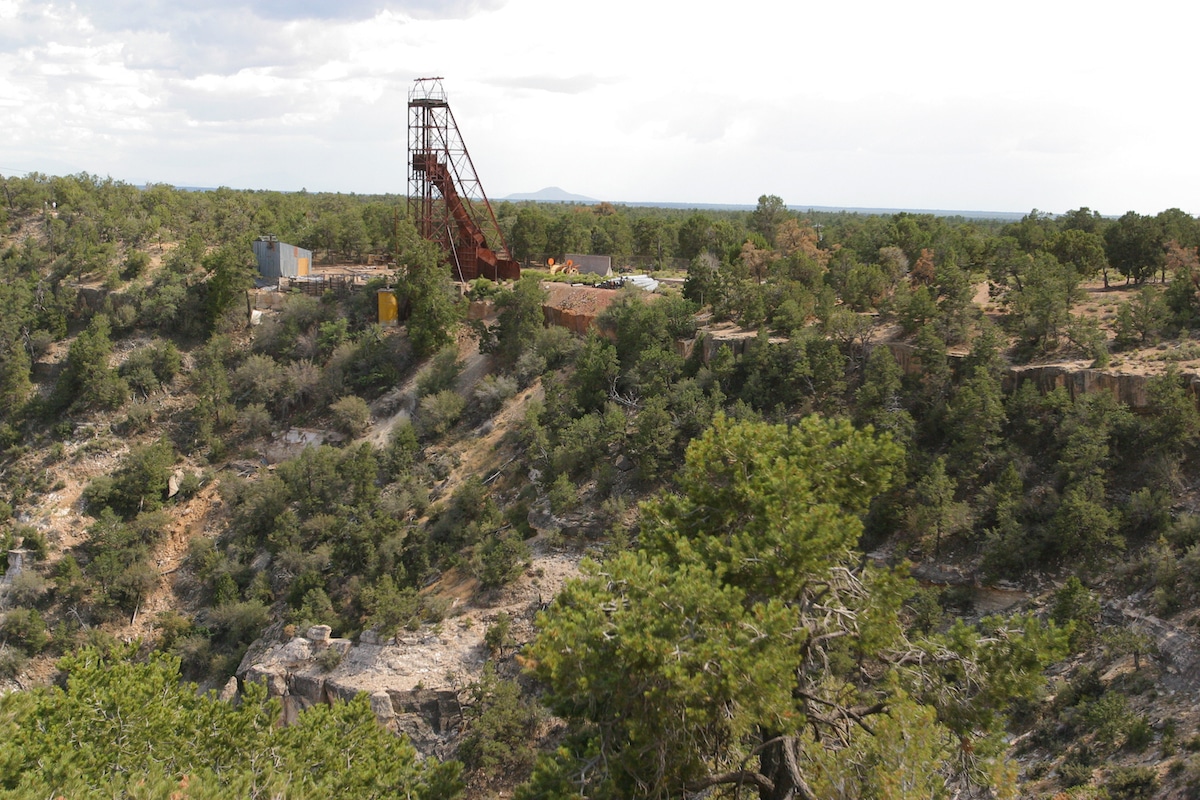Indigenous Groups Call for New National Monument

 Why you can trust us
Why you can trust us
Founded in 2005 as an Ohio-based environmental newspaper, EcoWatch is a digital platform dedicated to publishing quality, science-based content on environmental issues, causes, and solutions.
Grand Canyon National Park is one of the most iconic public lands in the U.S., but the surrounding area has long been in the sights of developers, especially uranium miners.
That is why the Grand Canyon Tribal Coalition wants President Joe Biden to permanently protect around 1.1 million acres north and south of the park as Baaj Nwaavjo I’tah Kukveni Grand Canyon National Monument.
“The canyon is a part of each and every Havasupai person. It is our home, it is our land, and our water source, and our very being,” Havasupai Tribe Vice Chair Edmond Tilousi said at a virtual press conference Tuesday calling for the monument’s creation, as Grand Canyon Trust reported.
The Grand Canyon Tribal Coalition brings together members of the Havasupai Tribe, Hopi Tribe, Hualapai Tribe, Kaibab Paiute Tribe, Las Vegas Band of Paiute Tribe, Moapa Band of Paiutes, Paiute Indian Tribe of Utah, Navajo Nation, San Juan Southern Paiute Tribe, Yavapai-Apache Nation, Pueblo of Zuni and the Colorado River Indian Tribes. The proposed monument emphasizes these Tribes’ deep connection with the land around the Grand Canyon. “Baaj nwaavjo” means “where tribes roam” for the Havasupai Tribe, while “i’tah kukveni” means “our footprints” for the Hopi Tribe.
“The creator gave us a gift, and that form is in the form of the Grand Canyon,” Hopi Tribe Chairman Tim Nuvangyaoma said, as the AZ Mirror reported. “We do have to protect the beauty and grandeur of this place many tribes call home.”
The proposed monument would only include public lands, according to Grand Canyon Trust. Within its borders lie sites that are sacred or historically important to Indigenous groups — such as Red Butte — as well as springs and waters that drain into the Colorado River.
Yet the area has also been threatened by uranium mining — there are almost 600 undeveloped mining claims in the monument site that would not go ahead if Biden agreed to designate it. The battle over mining in the area has lasted through three administrations at least. In 2012, President Barack Obama imposed a 20-year mining ban near the Grand Canyon, as HuffPost explained. While the ban faced legal backlash, it was upheld by the U.S. Court of Appeals for the 9th Circuit in 2017. Meanwhile, the Trump administration fought against legislation that would have permanently protected the area from uranium and other mining while seeking to revive the nation’s uranium industry. Protecting the land as a monument under the Antiquities Act of 1906 would end the battle and remove the mining threat permanently.
“I, as a Hualapai tribal leader stand strongly against any mining on tribal lands and ask that you support us in this fight to stop mining,” Hualapai Tribe Vice Chair Scott Crozier said, as Grand Canyon Trust reported.
In their appeal to Biden, the Tribes were joined by Sen. Kyrsten Sinema (I-Ariz.) and Rep. Raul Grijalva (D-Ariz.) at the virtual conference, which started at 10:30 a.m. local time.
“The national monument provides security to the Grand Canyon,” Grijalva said Tuesday, as AZ Mirror reported. “It provides security to the Indigenous people and tribes who see the Grand Canyon in a more profound and deep way.”
The call for a monument is also backed by other environmental organizations.
“This historic Tribal-led effort would protect lands that surround one of the country’s most famous national parks and safeguard lands and waters vital to the region, including the Red Butte Traditional Cultural Property,” Sandy Bahr, who directs the Sierra Club’s Grand Canyon Chapter, said in a statement emailed to EcoWatch. “We ask the President to listen to Tribal leaders and the people of Arizona and establish the Baaj Nwaavjo I’tah Kukveni Grand Canyon national monument.”
Subscribe to get exclusive updates in our daily newsletter!
By signing up, you agree to the Terms of Use and Privacy Policy & to receive electronic communications from EcoWatch Media Group, which may include marketing promotions, advertisements and sponsored content.

 233k
233k  41k
41k  Subscribe
Subscribe 




